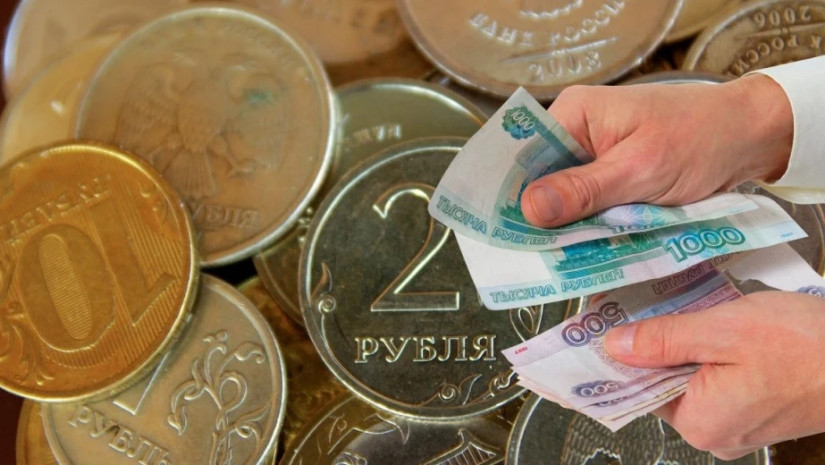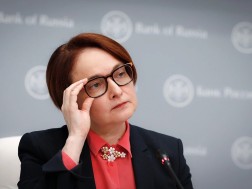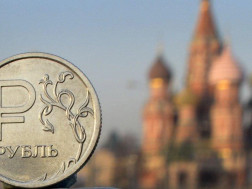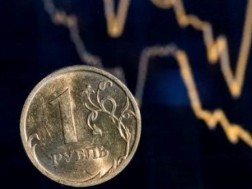The Russian ruble tumbled past 102 against the euro and 93 against the dollar on Thursday, hitting a new 15-month low as part of an ongoing devaluation that was exacerbated even further as Yevgeny Prighzohin’s armed revolt last month set markets on edge.
Russia’s Central Bank said Thursday that the sharp drop in the ruble’s value was brought on by weak exports.
“We see that when our exchange rate weakens, various conspiracies arise about how [the ruble] is deliberated weakened to increase budget revenues… But we must look, first of all, at the dynamics of foreign trade,” Central Bank Governor Elvira Nabiullina said.
Nabiullina explained that the ruble — which had initially plummeted beyond 100 against the dollar as war broke out in Ukraine — managed to restrengthen last year thanks to a rise in exports and a decrease in imports. However, now the situation has reversed, as lower exports mean far less foreign currency is entering Russia.
“If we compare the positive current account in the first quarter [of 2023], then compared to last year's peak, it fell five times, so the floating rate is changing under the influence of foreign trade,” Nabiullina added.
The ruble has traded with extreme volatility in the 16 months since Russia invaded Ukraine as the West has targeted Moscow’s foreign currency reserves and crucial energy exports through sanctions designed to cripple Russia’s economy.
Nabiullina highlighted the potential inflationary risks stemming from the continued devaluation of the ruble, emphasizing that such factors would be taken into account during the Central Bank’s upcoming meeting where it will decide whether to adjust its key rate, which has remained steady at 7.5% since September.
Meanwhile, Bloomberg economist Alex Isakov said months of capital outflows from Russia were the primary driver of the ruble’s devaluation, but also pointed out that Russian companies were bringing less foreign currency into the country.
“Some of this is due to increased settlement in local currencies that results in revenue getting stuck in import countries' banks. But increasingly exporters also prefer just keep their export proceeds offshore,” he wrote on Twitter.
Economist and professor at Moscow's Higher School of Economics Evgeny Kogan said the ruble remained under pressure due to ongoing market concerns amid Wagner's failed mutiny in June, but agreed with the Central Bank by noting that the trend was caused by growing imports and weak exports.
“Yes, part of the devaluation is now due to domestic shocks. But there is also a fundamental reason — low exports,” he said on Twitter, Moscow Times reports.
















